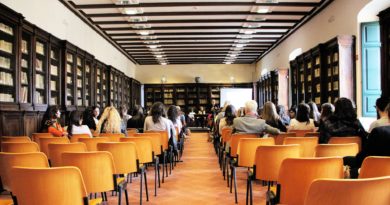Why life is no tick box you can fit in immigration categories
This article was adapted from my Twitter thread.
If there was a “brightest and best” tick box in immigration status applications, I would likely fit in at the moment. However, this has not always been the case. The binary ‘low skilled’ (undesirable) – ‘high skilled’ (desirable) migrant narrative limits our understanding of the lived realities of people who move across borders. The lack of migrant voices in debates about them also depersonalises the discussion and limits the ability to form policies suitable for real life situations. Here is my story as an example.
As a Sussex and Cambridge graduate currently pursuing my PhD studies at University College London, I might be among “the brightest and the best”, a slogan used by British government personalities to indicate foreign people welcome to the country. I teach undergraduates and I am involved in research projects. But if we look beyond the present moment, there were times when, some would argue, I did not tick the ‘desirable migrant’ box.
I first arrived in the UK in 1997, with my mother, about a year after my father started working in a hospital in a small northern English town. My mum recalls how both of their monthly salaries in Romania could not pay for a UK visa. After seven months of going to nursery in the UK, my parents and I returned to Romania.
I attended a free school in Romania, skipping many classes in the latter college years, but always keeping a passion for learning and achieving good grades. I planned to study abroad but had little guidance on university applications. I applied to five random subjects in random universities (I had only heard of Cambridge and Oxford from TV before) via the UK Universities and Colleges Admissions Service (UCAS). I was interviewed by Oxford but was rejected. I received one offer from Sussex University. Later in the year, in 2012, I achieved the highest grade in the Romanian Baccalaureate and I accepted my conditional offer at Sussex University.
I passed the English language exam that was required, but this was not enough to understand even half of the conversations my British colleagues had, during the first months of universities. Sometimes I hear people saying, “migrants should be sent back if they do not speak proper English”. Should I have been sent back then?
Three years later, I graduated with a first-class degree. My undergraduate years were a fun but difficult time. My mum came looking for work when I was in my second year, I worked in various part-time jobs, and also met my British partner.
In 2015, I received offers from both Cambridge and Oxford universities (and other top universities I applied to) for my masters. This was a point in time when all savings were spent and I definitely did not have enough to pay the almost £10,000 tuition fee. Should I have given up on my dreams? “You should have gone back to your own country”, some would say.
I took a different approach. That summer, I worked as an intern in London and saved some money. I borrowed £10,000 from the bank to pay the tuition fee. I accepted my offer at Cambridge with “sufficient resources”. In fact, I barely had enough to cover my first term’s accommodation if the situation would not have changed. My mum was made redundant and things got challenging again.
I had a nice time at Cambridge. I will always remember how one of my colleagues was shocked to hear about my college experiences in Romania. “So you did not have preparatory classes for Oxbridge interviews?” These are famously testing, but no, no one was aware of them in my school.
At Cambridge, I read my Master of Philosophy handbook, which underlined students should not do any paid work during term time. I did paid work during term time and still managed to finish with 72% overall. Meanwhile, my mother got a job and things got back to normal. “If you do not make a constant net contribution you should be sent back to your country”, some say. Should my mother and I have been deported due to insufficient resources in those times?
In 2016, after summer work on a temporary contract, I accepted my fully funded PhD at University College London (UCL). This was the best thing that happened to me. I was sad to leave Cambridge University, as I had a PhD offer there, but I could not afford to stay without a scholarship.
In 2017, my mother’s company was again restructured. After a few months of job searching, she decided to work in Germany instead. We were both concerned about our rights after Brexit, so we also thought it’s best to have a “Plan B”.
In 2018, things are getting better and better. I speak fluent English, have a lovely British partner and I am halfway through my PhD studies. But the rights of non-UK EU citizens and UK citizens in the EU27 after Brexit are not guaranteed yet. The UK instead proposed a lesser status for EU citizens, the “settled status”, that is currently not secured, particularly in the event of a “no deal” Brexit.
Many people told me not to criticise the “settled status”. Government representatives consistently push the line that settled status is a “fair and generous offer”. It is not fair to take away existing rights from people already here, like having to apply for what you already have, particularly since Vote Leave promised automatic grants of all existing rights and treating EU citizens “no less favorably than they are at present.” We do not need “extra rights”, we just want to keep the ones we have.
In the minds of many people who comment about citizens’ rights, EU nationals should be sent back to their countries unless they are tax-paying machines (and of course, not taking any benefits that they are entitled to). My message is: life is not a tick box as some of the immigration categories are. We all have highs and lows in life. To have a comprehensive migration policy, politicians should listen more to people’s stories, including cases that are far more disadvantaged and complex than mine.
It is time to put individualism aside and show some solidarity with your family, friends, neighbours, colleagues and acquaintances. It is time to hold politicians to account on their promises.
Removing some rights from this group tells also something about the insecurity of all our rights. Tomorrow the fight can be about workers’ rights, disability rights, or any other rights. So no more divide and rule. I am one of the over 3 million non-UK EU citizens, one of “the brightest and the best”, and I care about “the rest”.
Alexandra Bulat © all rights reserved.
Photo via Pixabay.
Alexandra Bulat is a research student funded by the Economic and Social Research Council (ESRC) at the School of Slavonic and East European Studies (SSEES), University College London (UCL). Her doctoral research focuses on attitudes towards EU migration in UK constituencies. When not working on her PhD, she is an activist on migrant rights’ issues with the3million. Twitter @alexandrabulat.
I am a Romanian PhD student, teaching assistant & researcher. One of @theresa_may‘s praised “brightest and the best” whose “contributions are welcome”.
This #TuesdayThoughts I want to share my story. Until I got to this point, I was in many ways an “undesirable migrant” ⬇
— Alexandra B (@alexandrabulat) March 6, 2018





